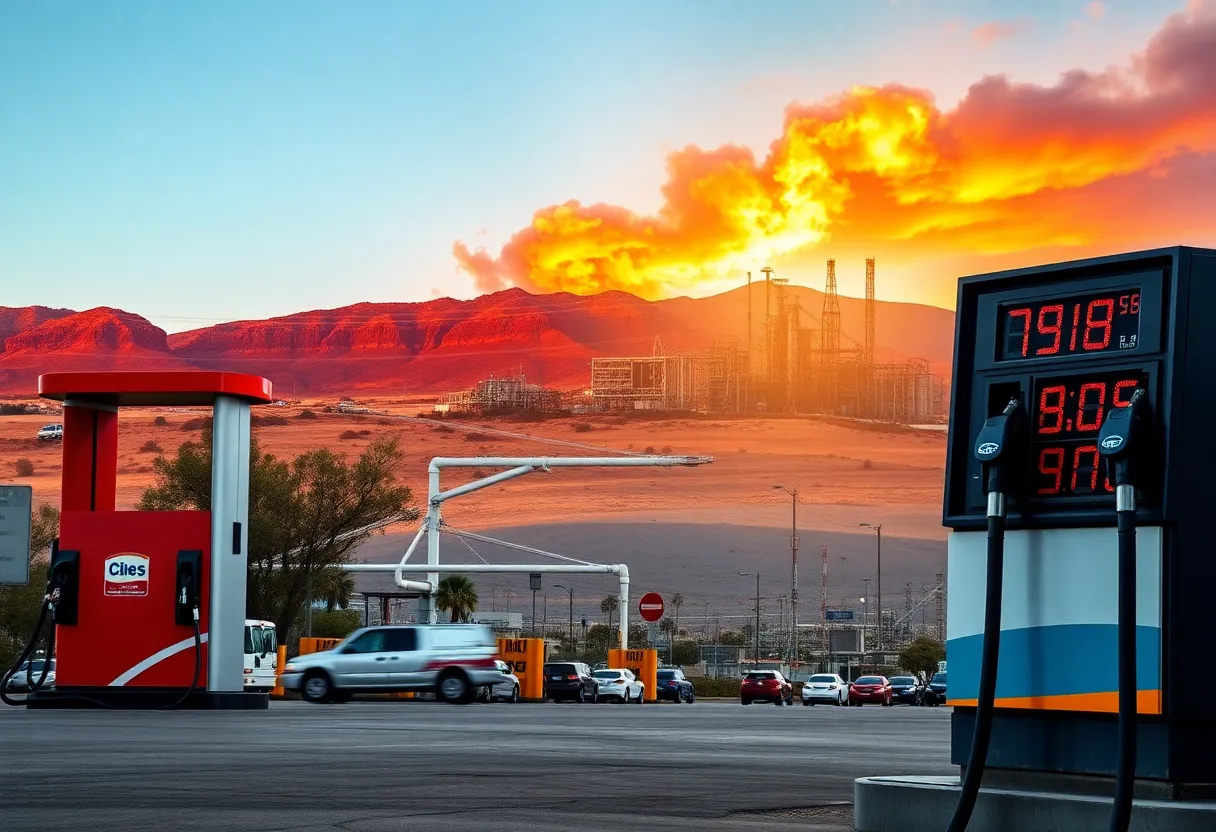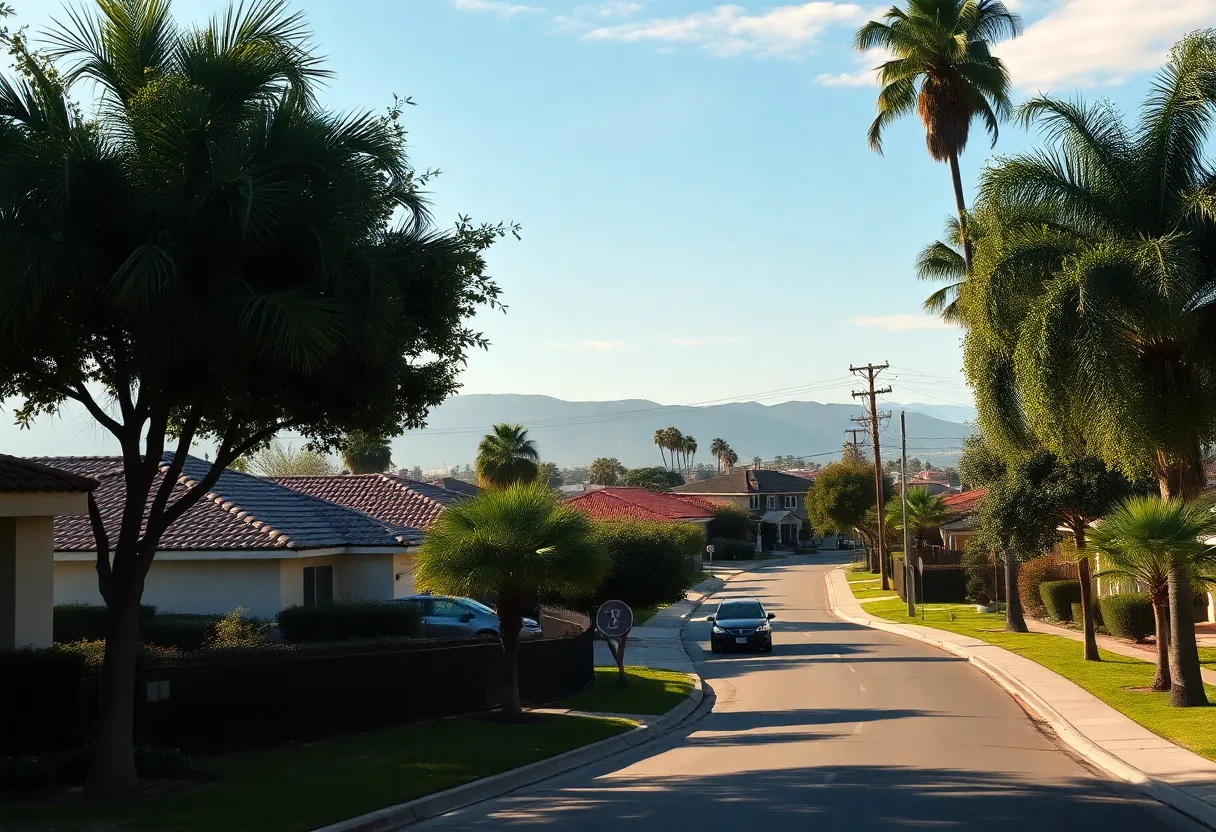California, August 25, 2025
News Summary
California is on the brink of a gasoline supply crisis due to the impending closure of two major refineries, which threatens 18% of the state’s refining capacity. This situation could drive gas prices up by 15 to 30 cents per gallon, impacting businesses and families. Governor Newsom proposes new legislation to stabilize the petroleum market amidst concerns over environmental standards and increasing reliance on imported fuels.
California is facing a significant gasoline supply crisis as two major refineries, Phillips 66’s Wilmington facility and Valero’s Benicia plant, prepare to close. This development puts 18% of the state’s refining capacity at risk, potentially leading to a surge in gas prices. Experts warn that consumers may experience price increases ranging from 15 to 30 cents per gallon in the short term.
The impending closures are framed as an affordability crisis, affecting both businesses and working families in California. This situation is expected to exacerbate existing economic pressures across the state, particularly in crucial areas relying on accessible fuel. The California Energy Commission (CEC) has already begun addressing concerns about fuel availability and affordability in light of these closures.
California has long faced scrutiny regarding its regulatory environment, particularly its impact on local oil production and refining operations. These regulations are seen by some as contributing to ongoing economic challenges. In response to this concerning trend, Assemblymember Cottie Petrie-Norris convened an oversight hearing to discuss the implications of these closures, urging for transparency and immediate action to address potential supply issues.
The economic infrastructure in California, especially in regions like Orange County, is heavily dependent on affordable fuel. Key sectors, including advanced manufacturing, life sciences, technology, and tourism, rely on stable fuel prices to operate effectively. Currently, gas prices in California average $1.47 more per gallon than the national average, underscoring the state’s steep fuel costs.
The refinery closures could lead to an increased reliance on imported fuels, which might not adhere to the same stringent environmental standards as California’s domestically produced fuels. These developments have raised concerns among lawmakers, some of whom express frustration with state regulators for not considering consumer impacts when making decisions affecting the oil and gas industry.
To combat the situation, proposed legislation from Governor Gavin Newsom aims to stabilize the petroleum market and bolster oil production within the state. This includes efforts to fast-track drilling permits in select regions, with the goal of ensuring the continued operation of some refineries amidst declining in-state production.
However, the proposed legislation has faced criticism from environmental groups, who argue that it disproportionately favors the oil industry at the expense of environmental protections. Key officials from state regulatory agencies have been summoned to discuss the implications of the refinery closures on fuel prices and availability.
California appears to be entering a new phase in its relationship with the petroleum industry, indicating a potential shift towards greater collaboration aimed at safeguarding the fuel supply amidst increasing regulatory pressures. Analysts caution that the refinery closures may necessitate a rise in oil imports to avert supply disruptions, amplifying the risk of price volatility for consumers.
FAQ
What is causing the gasoline supply crisis in California?
The closure of two major refineries, Phillips 66’s Wilmington facility and Valero’s Benicia plant, is responsible for the crisis, putting 18% of the state’s refining capacity at risk.
How will these refinery closures affect gas prices?
Experts predict that gas prices may increase by 15 to 30 cents per gallon in the short term due to the loss of refining capacity.
What actions are being taken to address these closures?
Governor Gavin Newsom has proposed legislation to stabilize the petroleum market and enhance local oil production, including measures to fast-track drilling permits.
How could the closures impact the environment?
Increased reliance on imported fuels as a result of refinery closures may lead to environmental concerns, as imported fuels might not meet California’s high standards.
Key Features of the Situation
| Feature | Detail |
|---|---|
| Refinery Closures | Phillips 66’s Wilmington facility and Valero’s Benicia plant closing. |
| Impact on Refining Capacity | 18% of California’s refining capacity at risk. |
| Projected Price Increase | 15 to 30 cents per gallon expected increase. |
| Legislative Response | Proposed legislation to stabilize the petroleum market. |
| Environmental Concerns | Potential increase in oil imports that may not meet environmental standards. |
Deeper Dive: News & Info About This Topic
- California’s Refinery Closure Drama
- Wikipedia: Oil Refinery
- A Do-Over for Newsom
- Google Search: California refinery shutdowns
- California Lawmakers & Regulators Clash
- Google Scholar: California refinery closures
- Gas Prices Could Soar with Refinery Closures
- Encyclopedia Britannica: California gas prices
- California Steps to Find Buyer for Valero Refinery
- Google News: California refinery closures

Author: STAFF HERE CORONADO
The Coronado Staff Writer represents the experienced team at HERECoronado.com, your go-to source for actionable local news and information in Coronado, San Diego County, and beyond. Specializing in "news you can use," we cover essential topics like product reviews for personal and business needs, local business directories, politics, real estate trends, neighborhood insights, and state news affecting the area—with deep expertise drawn from years of dedicated reporting and strong community input, including local press releases and business updates. We deliver top reporting on high-value events such as the Coronado Island Film Festival, productions at Lamb’s Players Theatre, community workshops at John D. Spreckels Center, and iconic celebrations at Hotel del Coronado. Our coverage extends to key organizations like the Coronado Chamber of Commerce and Visit Coronado, plus leading businesses in hospitality, dining, and tourism that drive the local economy. As part of the broader HERE network, including HERESanDiego.com, HEREHuntingtonBeach.com, HERELongBeach.com, and HERELosAngeles.com, we provide comprehensive, credible insights into Southern California's dynamic landscape.





